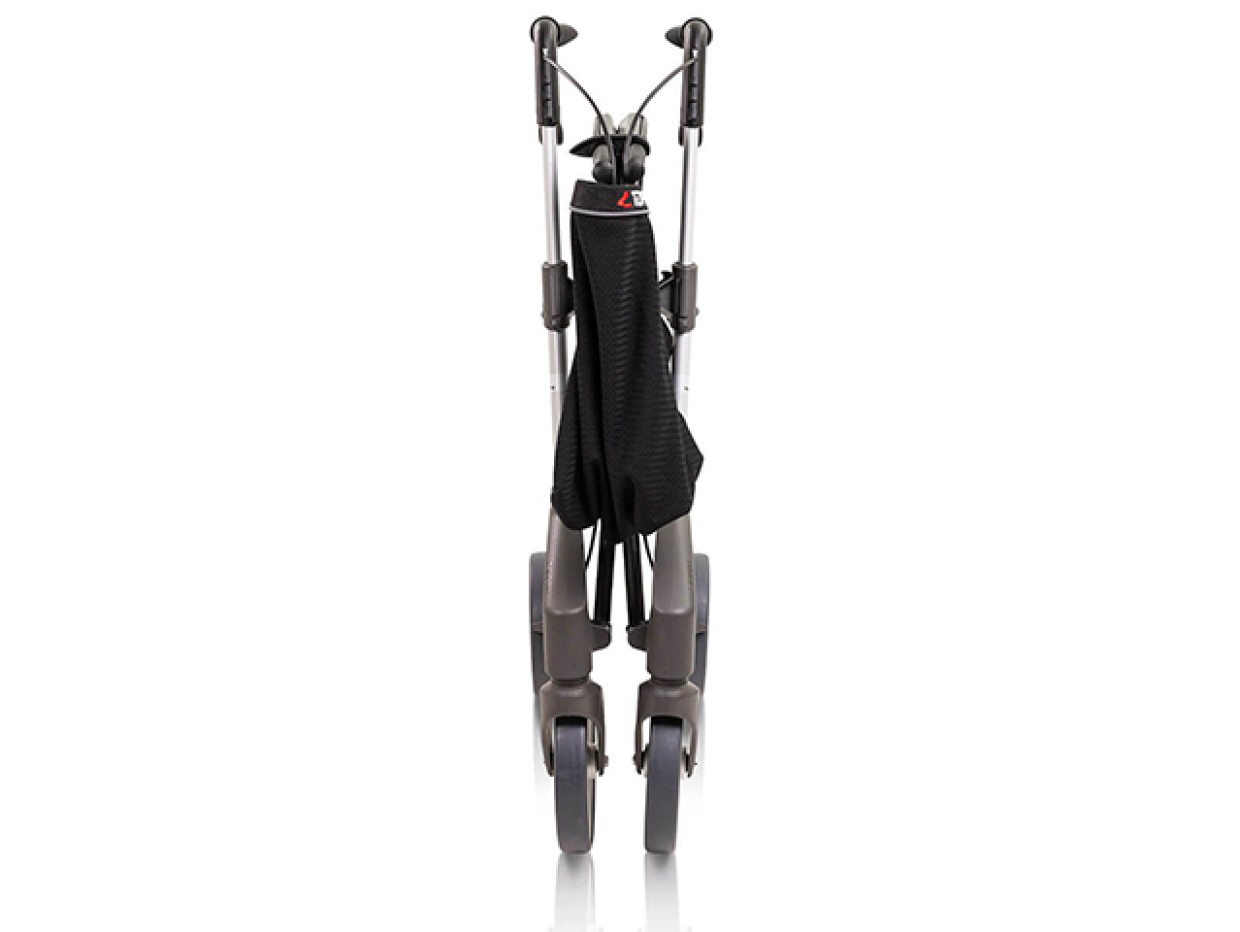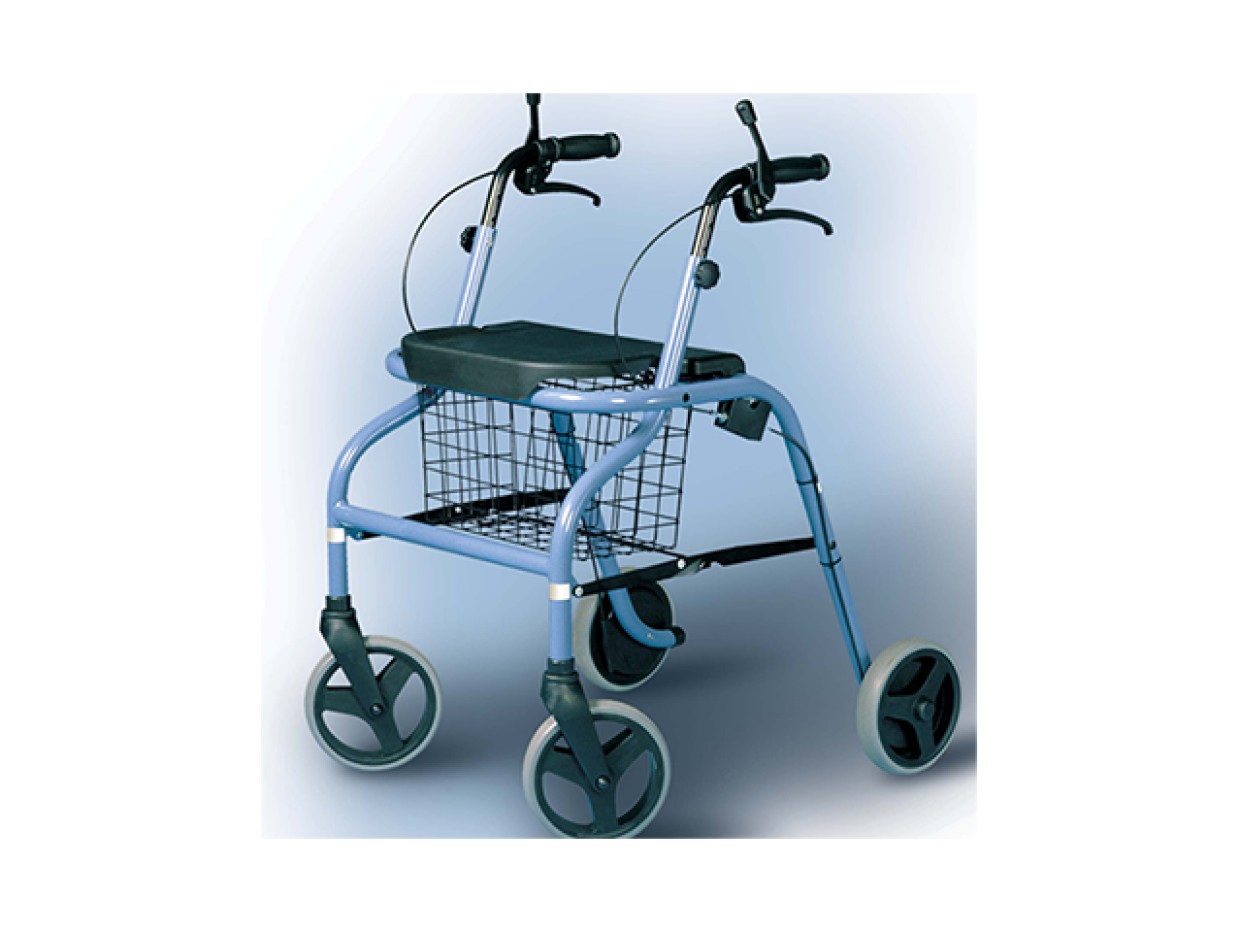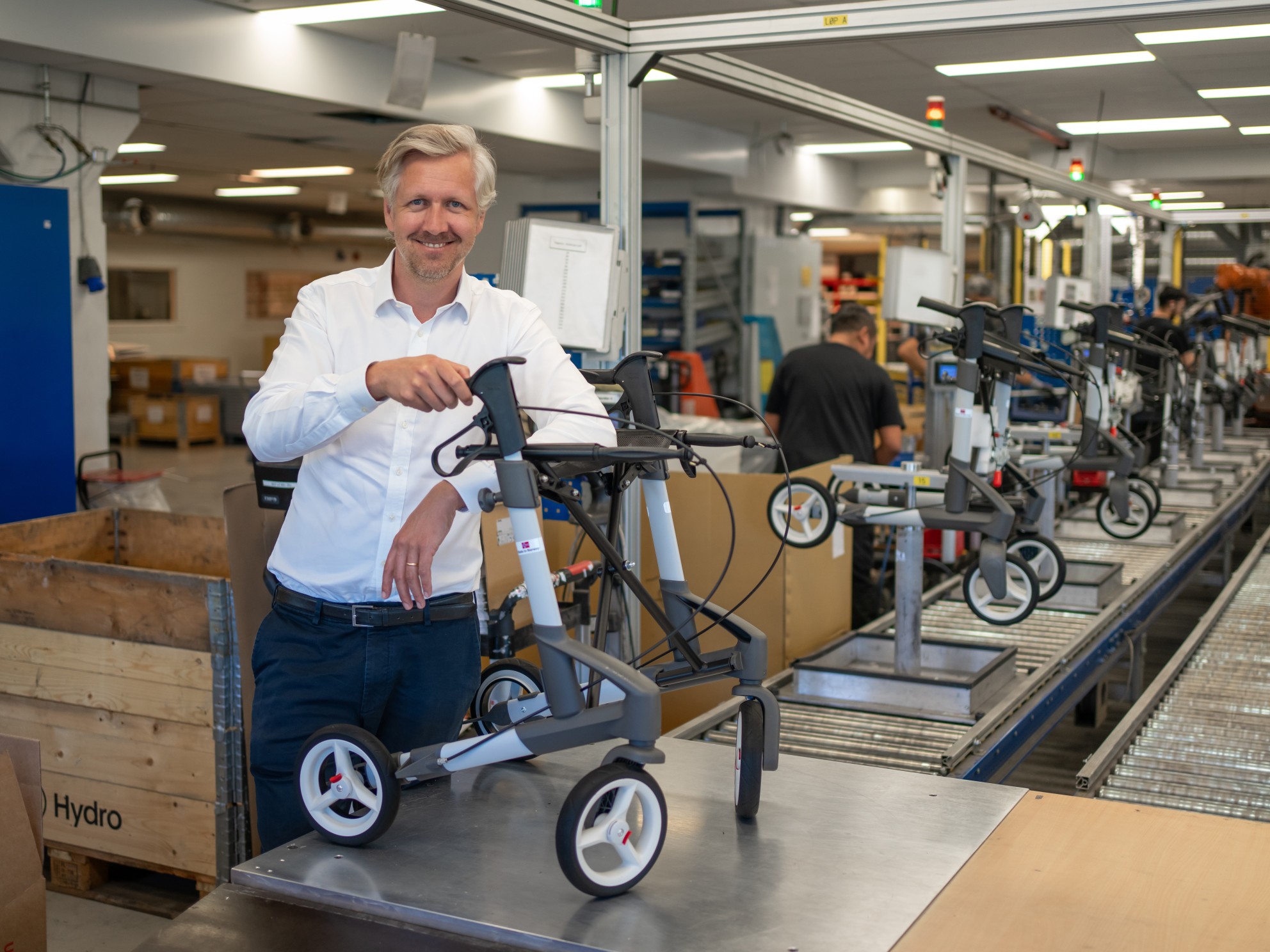They produce approximately 120,000 walkers annually at the factory in Gjøvik. 80% of the volume is exported to markets around the world. They have employees and distributors in 25 countries.
Intellectual property rights were not prioritized at the start
TOPRO started making walkers in 1990, and introduced the lightweight aluminum walker to the market. Until then, walkers were made of steel, which made them heavy and vulnerable to rust. In the early days, TOPRO produced quite a few units. Almost everything was handmade and put together on the floor in a garage. They focused on creating a product that was good and useful for the user, but unfortunately intellectual property rights were not something that was given much thought.
TOPRO was a rehabilitation company, and in addition the financial situation was challenging. This meant that IPR was not at the top of the agenda. In 2002, TOPRO launched a lightweight rollator that could be folded up, thus setting a new standard for walkers around the world. This resulted in great growth for TOPRO, and the export adventure really took off. TOPRO has established itself as a strong brand for quality walkers in the wake of this. But the lack of protection of these ingenious innovations led to the market being able to copy their walkers. Competitors studied the functions and design of Topro's models and created their own version, most of which was copied.
– Protecting our intellectual property rights is essential both in Norway and internationally to prevent copycats and protect our innovations. It also helps us to maintain our competitive advantage and ensure that we can continue to invest in product development.
IP rights have become important for the company
Today, TOPRO is a completely different company. It is no longer a rehabilitation company, but a global aid company with professional owners. They are now actively working to register and protect both designs and trademarks in all the markets we operate in. They now hold multiple IP rights, including design registrations, patents and trademarks across Europe and in other key international markets.
Gets assistance with the IP work
The company works with external IP consultants and legal counsel to ensure they are fully protected in all regions where they operate. For every new development project, IPR is an important part of the strategy. They work closely with an external party right from the beginning of the design process to ensure that the rights are well protected.


Regular market monitoring important
- We monitor the market regularly and work closely with our legal partners to identify potential violations, says Cosmin Cioroiu, who is responsible for research and development in the company. - We use different tools for this, and have established routines that enable us to react quickly when we discover unauthorized copies of our products.
Advice for other businesses
- Our advice would be to prioritize securing IP rights in the early design phase, especially if they plan to enter international markets. It is much easier to prevent problems than to solve them afterwards, says Cioroiu.




